High-Level Policy Session 4 : Bridging Digital Divides
WSIS
Session 456
Globally, over 1 billion new Internet users have been added over the last five years. Yet under half the world's people (3.7 billion) do not use the Internet. Many of them live in least developed countries (LDCs), landlocked developing countries (LLDCs), and small island developing states (SIDS).
According to the latest ITU data, 87% of people are using the Internet in developed countries, compared with 44% in developing countries. While virtually all urban areas in the world are covered by a mobile-broadband network, worrying gaps in connectivity and Internet access persist in rural areas. Globally, 72% of households in urban areas has access to the Internet at home, almost twice as much as in rural areas (38%).
Connectivity gaps in rural areas are especially serious in LDCs, where 17% of the rural population live in areas with no mobile coverage at all, and 19% of the rural population is covered by only a 2G network.
The COVID-19 pandemic has exacerbated existing digital divides between and within countries related to age, disability, gender, geography and socioeconomic status. With many essential services pushed online, there is a real and present danger that those without broadband Internet access could be left ever further behind.
For many people in the developing world, especially in LDCs, mobile telephony and Internet access remain unaffordable. The cost of broadband Internet access remains above the affordability target set by the Broadband Commission for Sustainable Development – namely, 2% of monthly gross national income (GNI) per capita for a number of LDCs.
According to ITU's latest data, in 84 or nearly half of the analysed set of countries, the cost of the data-only mobile-broadband remains above the 2% target, while fixed broadband access is unaffordable in 111 countries (56%).
This means that children and young people from the poorest households, rural and lower income states are falling even further behind their peers in terms of digital inclusion and are left with fewer opportunities to catch up, facing disproportionate exposure to poverty and unemployment.
Assessing investment requirements to bring about affordable universal connectivity is important to achieve the Sustainable Development Goals (SDGs). In some regions, bridging the connectivity gap means mainly upgrading existing coverage and capacity sites. However, in Sub-Saharan Africa, South Asia, and East Asia/Pacific, nearly half of the necessary radio access network (RAN) infrastructure investments will be greenfield. [1]https://www.itu.int/en/mediacentre/backgrounders/Pages/digital-inclusion-of-all.aspx
We are also fully aware that the benefits of the information technology revolution are today unevenly distributed between the developed and developing countries and within societies. We are fully committed to turning this digital divide into a digital opportunity for all, particularly for those who risk being left behind and being further marginalized. https://www.itu.int/net/wsis/docs/geneva/official/dop.html
First Phase of the WSIS (10-12 December 2003, Geneva) Geneva Declaration of Principles
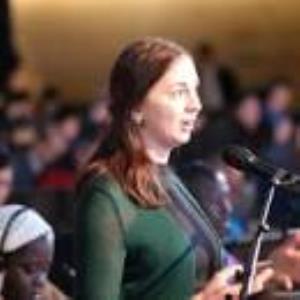
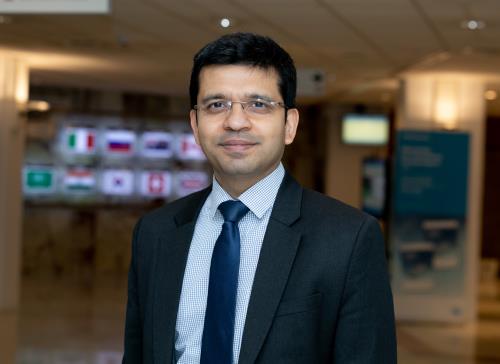
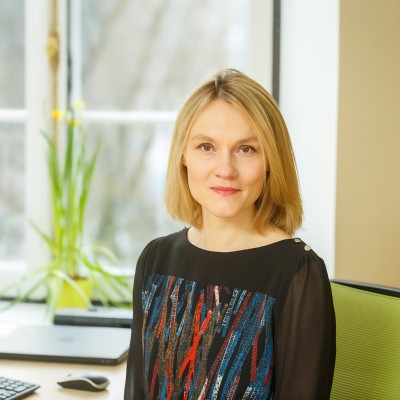
Nele Leosk serves as the Ambassador-at-Large for Digital Affairs at the Ministry of Foreign Affairs of Estonia, being responsible for the development and coordination of Estonia’s digital diplomacy.
Over the past twenty years, she has advised political and public sector leaders in digital governance and digital economy in more than forty countries in Central and Eastern Europe, South-Eastern Europe, Middle East, Central Asia, and Africa. She has lead the development and execution of government digitalisation strategies and initiatives but has also a hands-on experience in the development of digital services and e-participation tools. Apart from government work, she has experienced the life of private sector, international and inter-governmental organisations such as the UNDP, UNU-eGOV, OECD as well as academia.
As a promoter of an open, fair, and inclusive digital society, Nele is the chair of Digital Cooperation and Digital Diplomacy network, member of the World Economic Forum’s Global Future Council on Agile Governance, advisory board member of GovStack Initiative, member of the support group of an Open Government Partnership Initiative, and active in several networks on women in tech.
Nele holds a PhD in Political and Social Sciences from the European University Institute (EUI), Italy.
She is a former Fulbright-Schuman grantee at the National Centre for Digital Government at the University of Massachusetts Amherst and at the Governance Lab at New York University, USA.
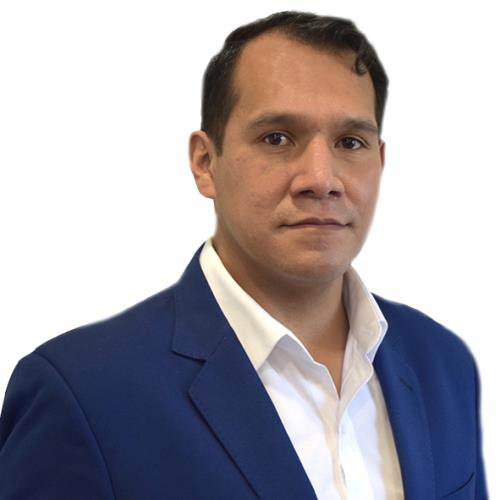
Néstor Ríos Rivero nació en La Paz – Bolivia. Es Abogado titulado de la Universidad Mayor de San Andrés y cuenta con una Maestría en Gerencia y Dirección de Empresas con Mención en Telecomunicaciones de la Universidad Camilo José Cela de Madrid – España, además de una segunda Maestría en Derecho Minero en la Cámara Minera del Perú y otros cursos de Postgrado en materia de minería, de telecomunicaciones, administrativa y de gerencia.
Del 2006 al 2009 desempeñó funciones en la Superintendencia de Telecomunicaciones - SITTEL, y desde el 2010 hasta el 2013 en el área legal de la Autoridad de Regulación y Fiscalización de Telecomunicaciones y Transportes - ATT.
También cumplió funciones en la Autoridad Jurisdiccional Administrativa Minera - AJAM desde el 2013 al 2019, llegando asumir cargos ejecutivos como Asesor General, Coordinador Nacional, Director Jurídico a.i. y otros.
En marzo de 2021 en reconocimiento a su trayectoria laboral y académica, es designado por el Presidente del Estado Plurinacional de Bolivia, Luis Arce, como Director Ejecutivo de la Autoridad de Regulación y Fiscalización de Telecomunicaciones y Transportes ATT, cargo desde el cual viene realizando un trabajo comprometido y genuino al servicio del pueblo boliviano.
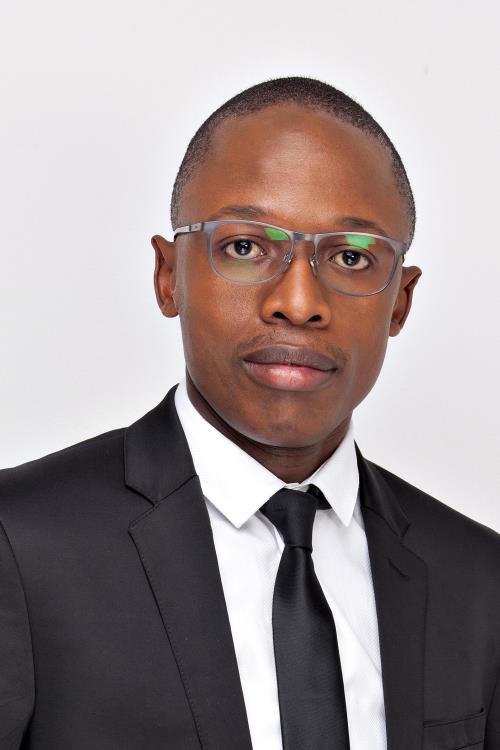
Dr Keabetswe Modimoeng was appointed the Executive Chairperson of the Independent Communications Authority of South Africa (ICASA) in August 2020. He is a former award-winning Sunday Times Journalist, fulfilled a Communications role at Anglo American then joined Samsung Electronics Africa as Public Affairs and Corporate Citizenship Manager. He joined the Council of ICASA in 2016 where he led various regulatory projects including Type Approvals, Elections Monitoring to name a few. He also served as a member of the Complaints and Compliance Committee of ICASA, a tribunal tasked with adjudicating a wide range of regulatory non-compliance matters.
Dr Modimoeng has corporate governance experience from a decade of cumulative practice serving in Presidential and Ministerial appointed boards in South Africa. His participation in academic boards includes previously serving as a Senate member at the Tshwane University of Technology.
Dr Modimoeng holds an MBA (Regent Business School) and PhD in Management Sciences (Durban University of Technology). He also completed a Senior Executive Fellows programme at the Harvard Kennedy School (Harvard University) as well as an Executive Development Programme from the Wharton School, University of Pennsylvania.
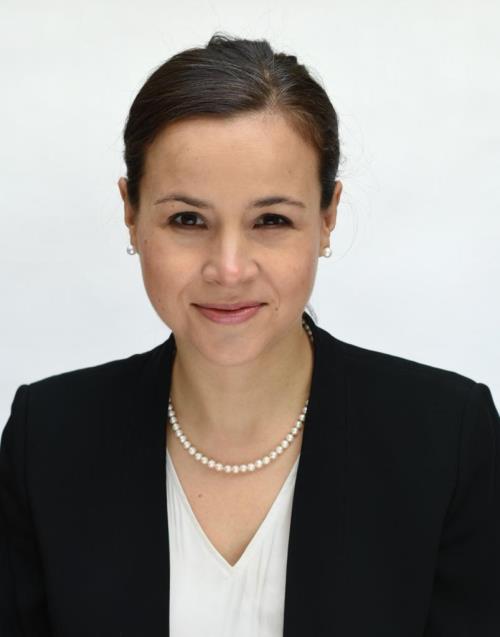
Mrs. Mercedes Aramendía is the President of the Uruguayan Regulatory Unit of Communication Services (URSEC).
• Ph.D. in Legal Sciences, University of Granada, Spain.
• LLM in Law, Technology and Entrepreneurship, Cornell University, Cornell Tech, United States.
• MBA, EAE Business School, and Master in Administration, Management and Business Organization, Camilo José Cela University, Spain.
• Degree in Law and Master's Degree in Access to the Legal Profession, Antonio de Nebrija University, Spain.
• Master in Economic Administrative Law, University of Montevideo, Uruguay.
• Lawyer, University of Montevideo, Uruguay.
- President of the CONICYT (National Council of Science, Technology, and Innovation)
- Professor and Director of the Postgraduate Course “Digital Transformation and the Law”, University of Montevideo, Uruguay.
- Consultant and lawyer in the ICT sector, collaborated with various telecommunications, technology, and entrepreneurship organizations.
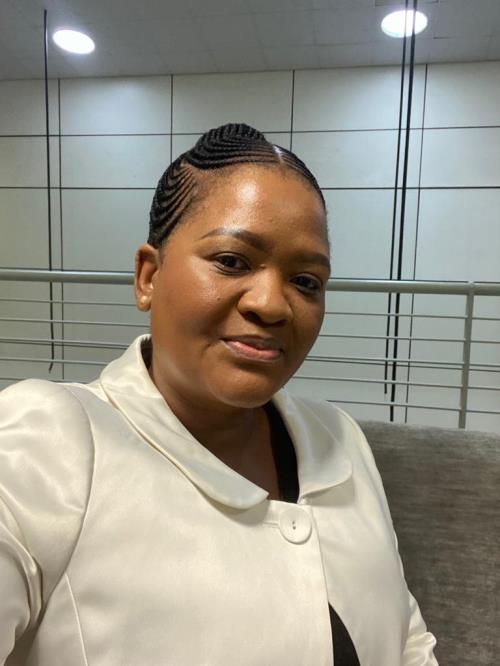
Mrs. Maitseo Ratladi (MBA) makes part of the executive management of the Botswana Communications Regulatory Authority (BOCRA), currently holding the position of Director-Broadband & Universal Access and Services. She has contributed to the growth of Botswana’s communications landscape for over nineteen (19) years, serving at regulatory level, policy advisory level and overseeing implementation of connectivity projects under the Universal Access and Service Fund. She has successfully led teams responsible for economic regulation and market development; pricing and licensing of communication services, as well as digital inclusivity for the benefit of rural and remote communities, disadvantaged groups and grassroot learners. Mrs. Ratladi contributes to the strong collaboration that exists between Botswana and the international world on the digital development front, through working closely with local, regional and international stakeholders.
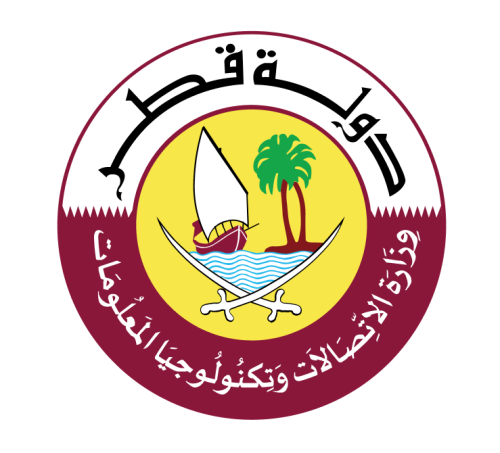
Al-Sulaiti currently leads QATAR e-Government Strategy development. With responsibility of supervising the implementation of Current e-government plans, in coordination with different government ministries. She also responsible for proposing the necessary legislation, policies and standards for Information Technology Sector in the country.
Al-Sulaiti brings 17 years of experience in the field of information technology and has a diverse background in both IT strategies and business models, with extensive experience in local culture, Organisational Change and latest technical trends.
Al-Sulaiti holds an Executive Master degree in Strategic Business Unit Management from HEC PARIS and a Bachelor’s degree in Computer Science from the University of QATAR.
During her career, she held various leadership positions in IT departments across different government ministries, including the Ministry of Labor, Ministry of Social Development and Family ,and the Ministry of Commerce and Industry where she leaded several strategic projects in the country.
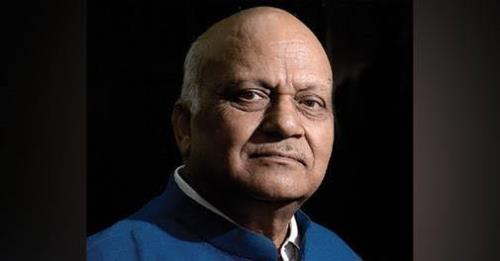
Prof. NK Goyal Known as Telecom Father Figure, being in the field for last 49 years. The only person in the world Inaugurating & Ribbon Cutting World’s largest Consumer Electronic Show CES Las Vegas, USA for continuous ten years.
President, CMAI association of India, www.cmai.asia, having 48,500 members & 74 MOU partners worldwide; Chairman Emeritus, Telecom Equipment Manufacturers Association of India www.tematelecom.in; Vice Chairman International Telecom Union APT India; Member Governing Board Telecom Equipment & Services Export Promotion Council (Govt. of India), Director National Fertilizers Ltd. Associated with several industry associations.
Former GM HP Electronics Dev Corpn. & President HFCL.
Actively engaged in ICT, Mobile, Telecom, Education, Alternate Energy, Multimedia, Infrastructure & Education Sectors. Ten China offices & in several other Countries including USA, UK, Taiwan, Korea, Singapore, Bangkok etc. Known for delegations to various Countries and receiving incoming delegations. Providing generally one way/two way air fare, free hotel stay etc.
Representing on more than 180 Government Committees, Groups and very deeply involved in Policy Formulations on Telecom, Mobile, IT, Education.
Industry Academic Interface, Guest Speaker, National Vocational Courses with AICTE/MHRD in Institutes
Signature events are NTA ICT World Communication Awards and National Education Awards (at National and State Levels), presented by Secretary General, International Telecom Union, Geneva; Head of Commonwealth Telecom organisation, UK, Ministers from India, Africa etc. And ICOMM, the only exhibition for mobiles held every year in India, China at Shenzhen and Shanghai.
-
 C1. The role of governments and all stakeholders in the promotion of ICTs for development
C1. The role of governments and all stakeholders in the promotion of ICTs for development
-
 C2. Information and communication infrastructure
C2. Information and communication infrastructure
-
 C3. Access to information and knowledge
C3. Access to information and knowledge
-
 C4. Capacity building
C4. Capacity building
-
 C5. Building confidence and security in use of ICTs
C5. Building confidence and security in use of ICTs
-
 C6. Enabling environment
C6. Enabling environment
-
 C7. ICT applications: benefits in all aspects of life — E-government
C7. ICT applications: benefits in all aspects of life — E-government
-
 C7. ICT applications: benefits in all aspects of life — E-business
C7. ICT applications: benefits in all aspects of life — E-business
-
 C7. ICT applications: benefits in all aspects of life — E-learning
C7. ICT applications: benefits in all aspects of life — E-learning
-
 C7. ICT applications: benefits in all aspects of life — E-health
C7. ICT applications: benefits in all aspects of life — E-health
-
 C7. ICT applications: benefits in all aspects of life — E-employment
C7. ICT applications: benefits in all aspects of life — E-employment
-
 C7. ICT applications: benefits in all aspects of life — E-environment
C7. ICT applications: benefits in all aspects of life — E-environment
-
 C7. ICT applications: benefits in all aspects of life — E-agriculture
C7. ICT applications: benefits in all aspects of life — E-agriculture
-
 C7. ICT applications: benefits in all aspects of life — E-science
C7. ICT applications: benefits in all aspects of life — E-science
-
 C8. Cultural diversity and identity, linguistic diversity and local content
C8. Cultural diversity and identity, linguistic diversity and local content
-
 C9. Media
C9. Media
-
 C10. Ethical dimensions of the Information Society
C10. Ethical dimensions of the Information Society
-
 C11. International and regional cooperation
C11. International and regional cooperation
-
 Goal 1: End poverty in all its forms everywhere
Goal 1: End poverty in all its forms everywhere
-
 Goal 2: End hunger, achieve food security and improved nutrition and promote sustainable agriculture
Goal 2: End hunger, achieve food security and improved nutrition and promote sustainable agriculture
-
 Goal 3: Ensure healthy lives and promote well-being for all
Goal 3: Ensure healthy lives and promote well-being for all
-
 Goal 4: Ensure inclusive and equitable quality education and promote lifelong learning opportunities for all
Goal 4: Ensure inclusive and equitable quality education and promote lifelong learning opportunities for all
-
 Goal 5: Achieve gender equality and empower all women and girls
Goal 5: Achieve gender equality and empower all women and girls
-
 Goal 6: Ensure access to water and sanitation for all
Goal 6: Ensure access to water and sanitation for all
-
 Goal 7: Ensure access to affordable, reliable, sustainable and modern energy for all
Goal 7: Ensure access to affordable, reliable, sustainable and modern energy for all
-
 Goal 8: Promote inclusive and sustainable economic growth, employment and decent work for all
Goal 8: Promote inclusive and sustainable economic growth, employment and decent work for all
-
 Goal 9: Build resilient infrastructure, promote sustainable industrialization and foster innovation
Goal 9: Build resilient infrastructure, promote sustainable industrialization and foster innovation
-
 Goal 10: Reduce inequality within and among countries
Goal 10: Reduce inequality within and among countries
-
 Goal 11: Make cities inclusive, safe, resilient and sustainable
Goal 11: Make cities inclusive, safe, resilient and sustainable
-
 Goal 12: Ensure sustainable consumption and production patterns
Goal 12: Ensure sustainable consumption and production patterns
-
 Goal 13: Take urgent action to combat climate change and its impacts
Goal 13: Take urgent action to combat climate change and its impacts
-
 Goal 14: Conserve and sustainably use the oceans, seas and marine resources
Goal 14: Conserve and sustainably use the oceans, seas and marine resources
-
 Goal 15: Sustainably manage forests, combat desertification, halt and reverse land degradation, halt biodiversity loss
Goal 15: Sustainably manage forests, combat desertification, halt and reverse land degradation, halt biodiversity loss
-
 Goal 16: Promote just, peaceful and inclusive societies
Goal 16: Promote just, peaceful and inclusive societies
-
 Goal 17: Revitalize the global partnership for sustainable development
Goal 17: Revitalize the global partnership for sustainable development